Best Album Cover Art
Determining the “best” album cover art is, of course, highly subjective—everyone’s taste differs. Still, some covers have transcended individual preference to become iconic visual statements in music history. Below is a selection of fifteen revered album covers often cited for their artistic and cultural impact. They’re listed in no particular order.
| Spot | Artist | Album | Buy it Now |
|---|---|---|---|
| 1 | The Beatles | Sgt. Pepper’s Lonely Hearts Club Band | Vinyl | CD |
| 2 | Pink Floyd | The Dark Side of the Moon | Vinyl | CD |
| 3 | Nirvana | Nevermind | Vinyl | CD |
| 4 | The Velvet Underground & Nico | The Velvet Underground & Nico | Vinyl | CD |
| 5 | Kendrick Lamar | To Pimp a Butterfly | Vinyl | CD |
| 6 | King Crimson | In the Court of the Crimson King | Vinyl | CD |
| 7 | The Rolling Stones | Sticky Fingers | Vinyl | CD |
| 8 | Kanye West | My Beautiful Dark Twisted Fantasy | Vinyl | CD |
| 9 | David Bowie | Aladdin Sane | Vinyl | CD |
| 10 | The Clash | London Calling | Vinyl | CD |
| 11 | Led Zeppelin | Led Zeppelin IV | Vinyl | CD |
| 12 | Radiohead | OK Computer | Vinyl | CD |
| 13 | Fleetwood Mac | Rumours | Vinyl | CD |
| 14 | Kendrick Lamar | DAMN | Vinyl | CD |
| 15 | Joy Division | Unknown Pleasures | Vinyl | CD |
1) Sgt. Pepper’s Lonely Hearts Club Band
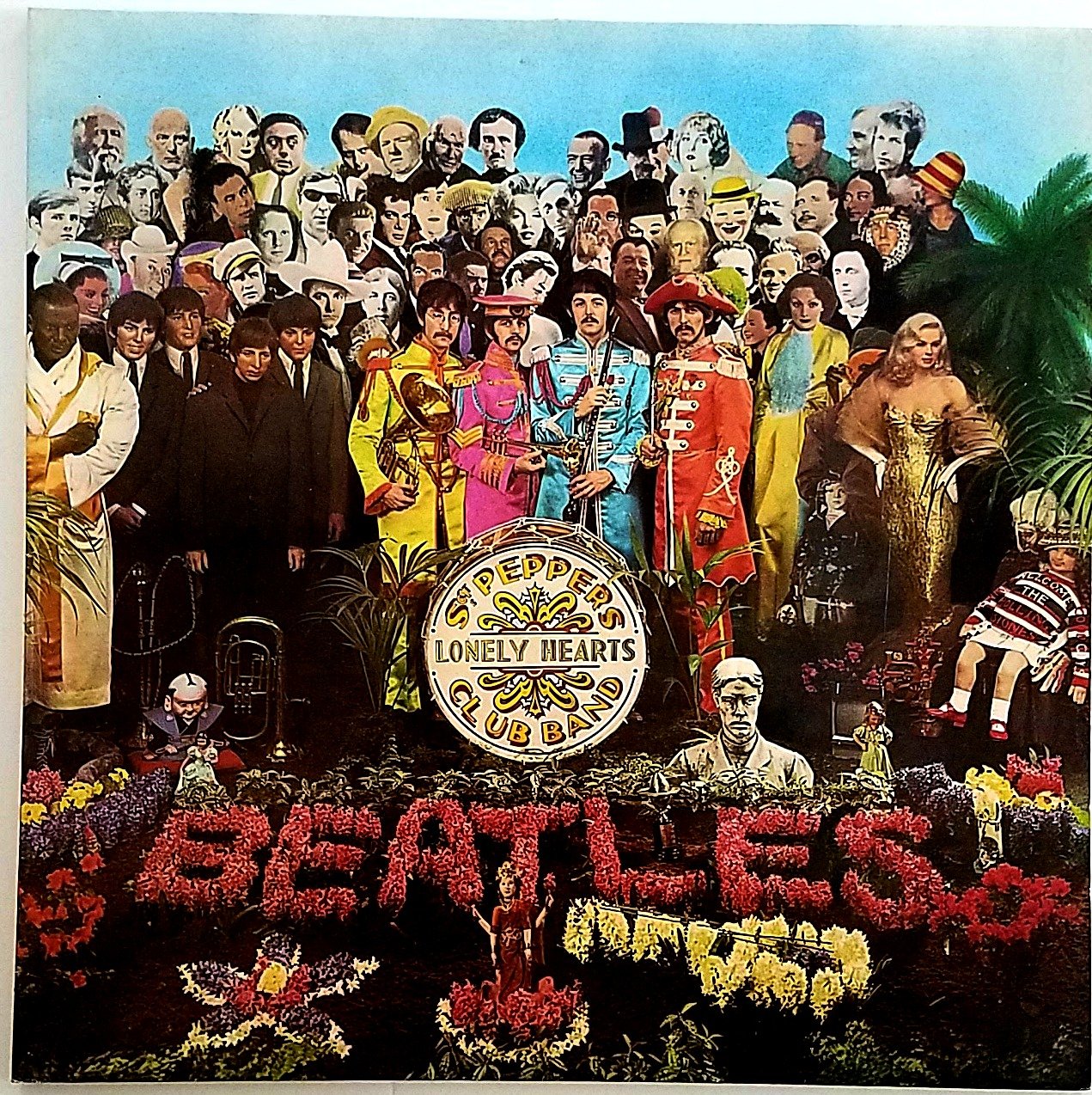 | Designed by Peter Blake and Jann Haworth, this vibrant collage features cutouts of famous figures and the Beatles themselves in colorful regalia, capturing the psychedelic, forward-thinking spirit of the late 1960s. |
2) The Dark Side of the Moon
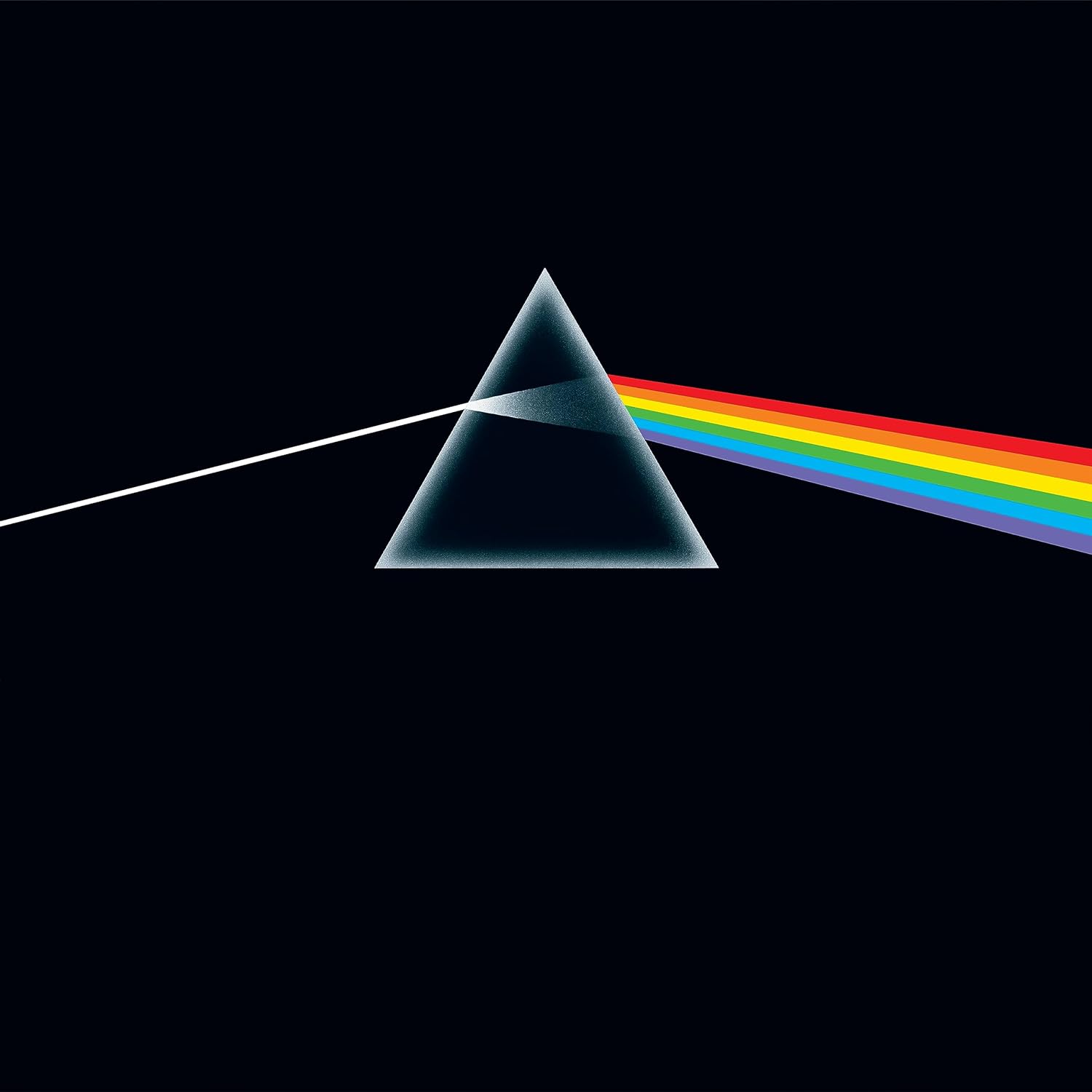 | Storm Thorgerson (of the design group Hipgnosis) and George Hardie created a minimalist, prism-based image that has become one of the most recognizable rock logos of all time. |
3) Nevermind
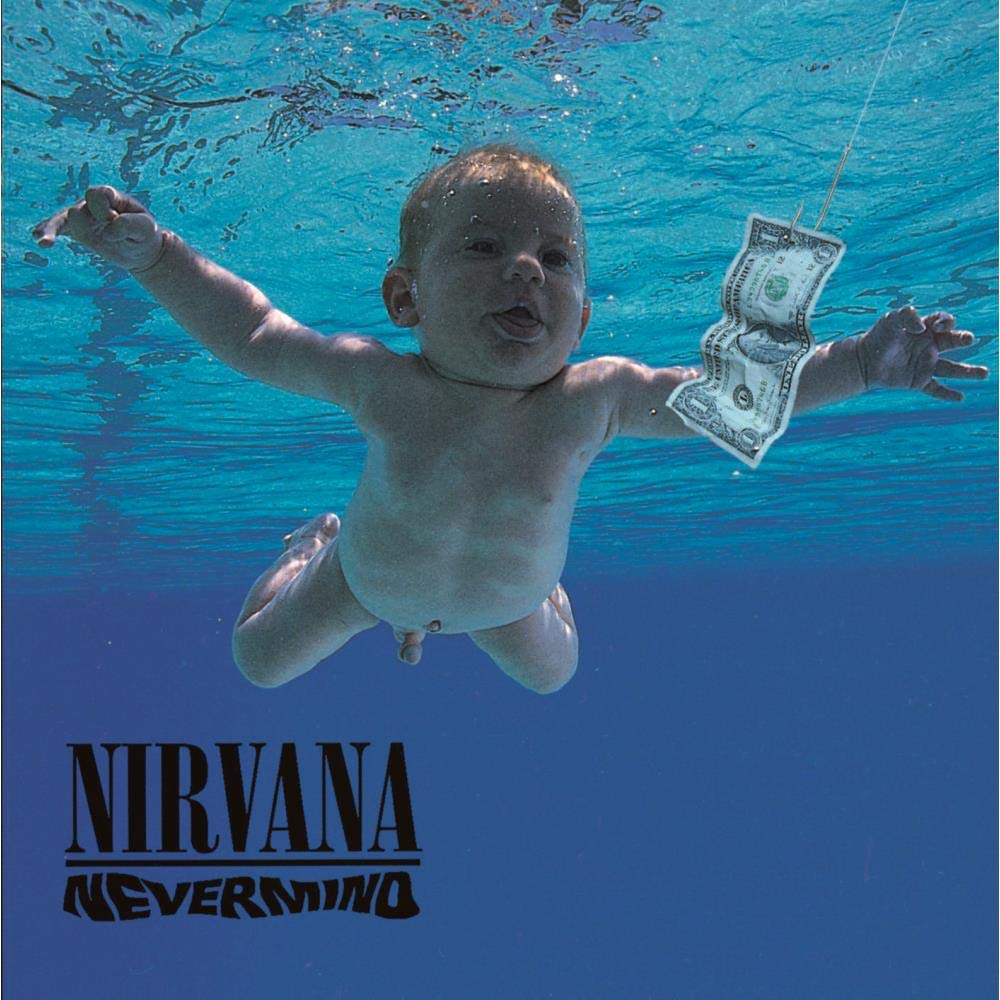 | The image of a baby swimming underwater, reaching for a dollar bill on a fishhook, reflects the album’s themes of innocence lost and societal pressures. It became a defining visual symbol of the early ’90s grunge era. |
4) The Velvet Underground & Nico
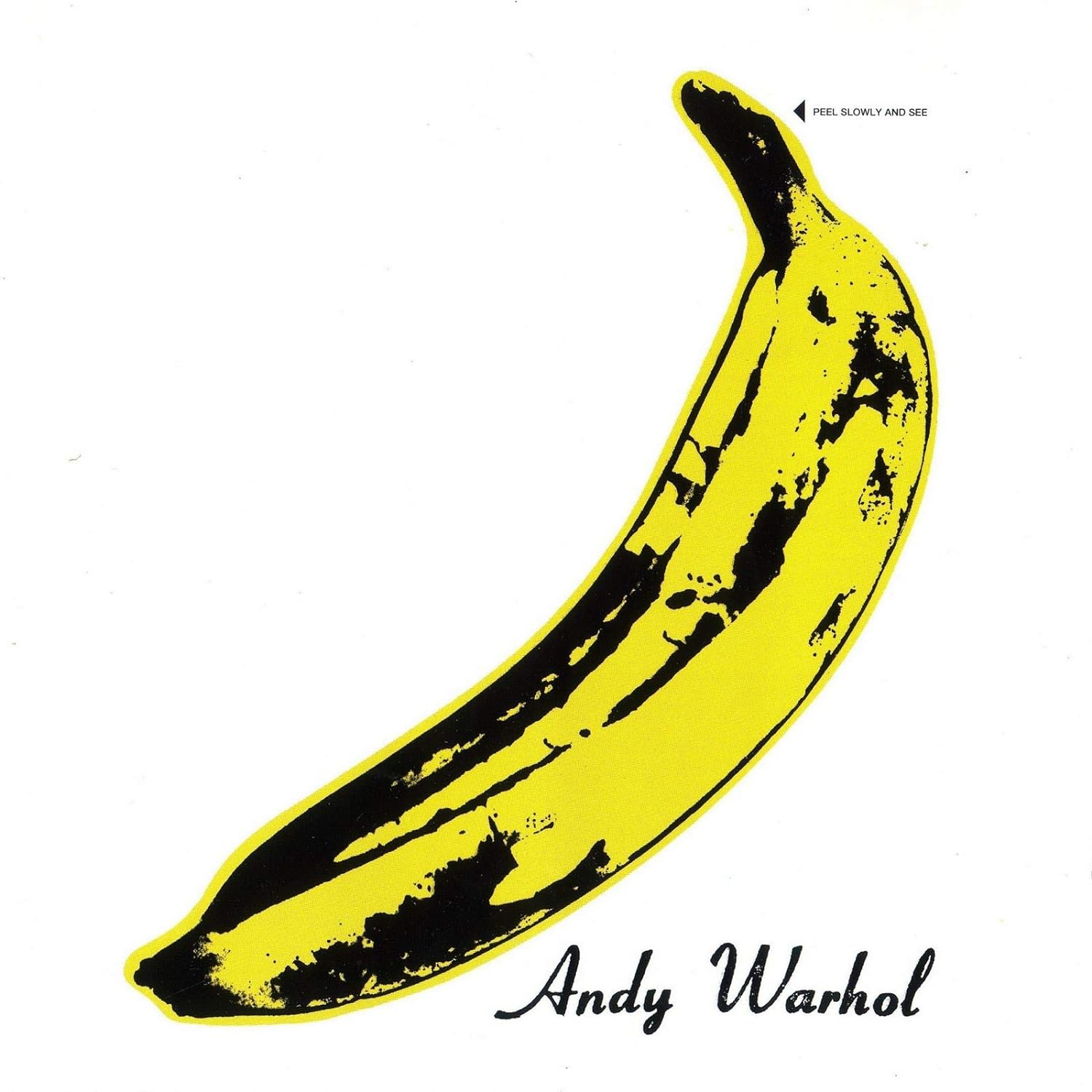 | Designed by pop-art legend Andy Warhol, the original LP featured a peelable banana sticker. Its blend of art-world cool and rock subversion still stands as an enduring piece of pop art history. |
5) To Pimp a Butterfly
 | A powerful photo of a group of Black men and children on the White House lawn, holding money and a gavel, speaks to the album’s themes of race, power, and American identity. It matches the music’s social consciousness and energy. |
6) In the Court of the Crimson King
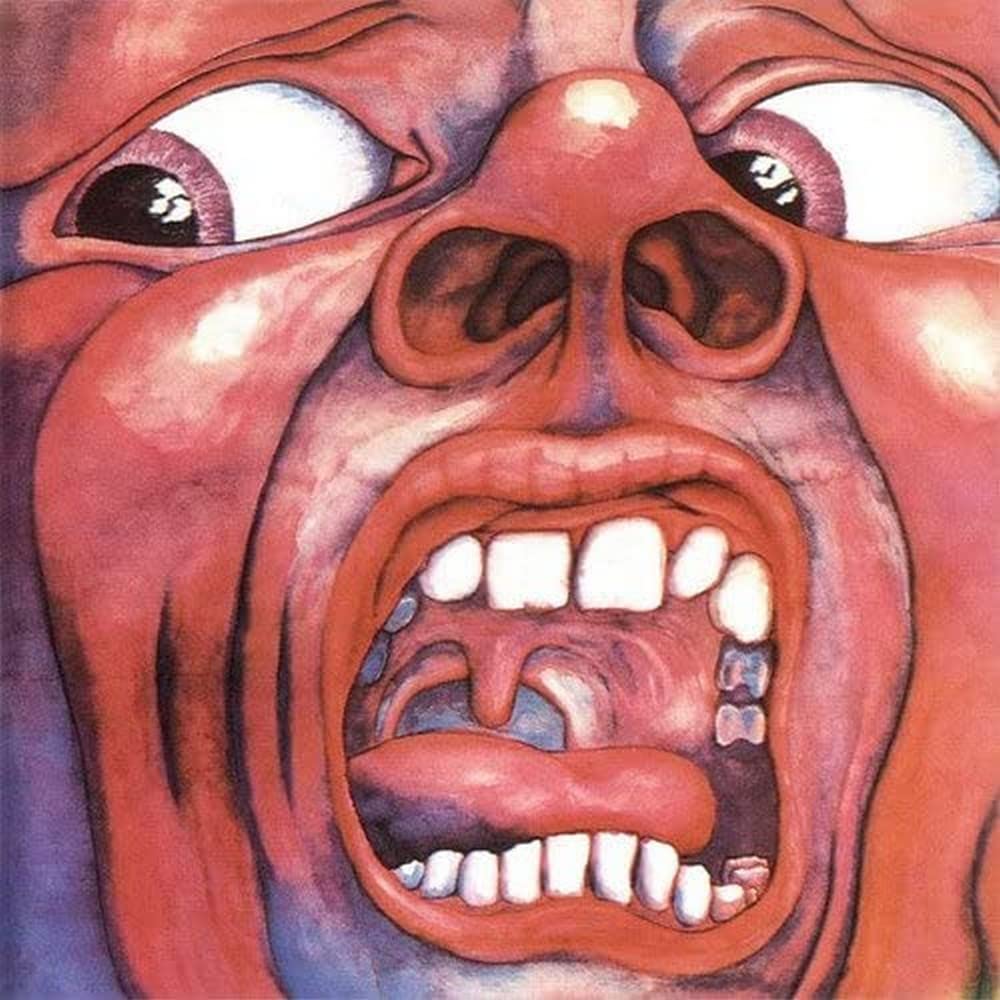 | Painted by artist Barry Godber (who sadly passed away soon after finishing the piece), this intense, contorted face remains a striking image of prog-rock’s early experimentation. |
7) Sticky Fingers
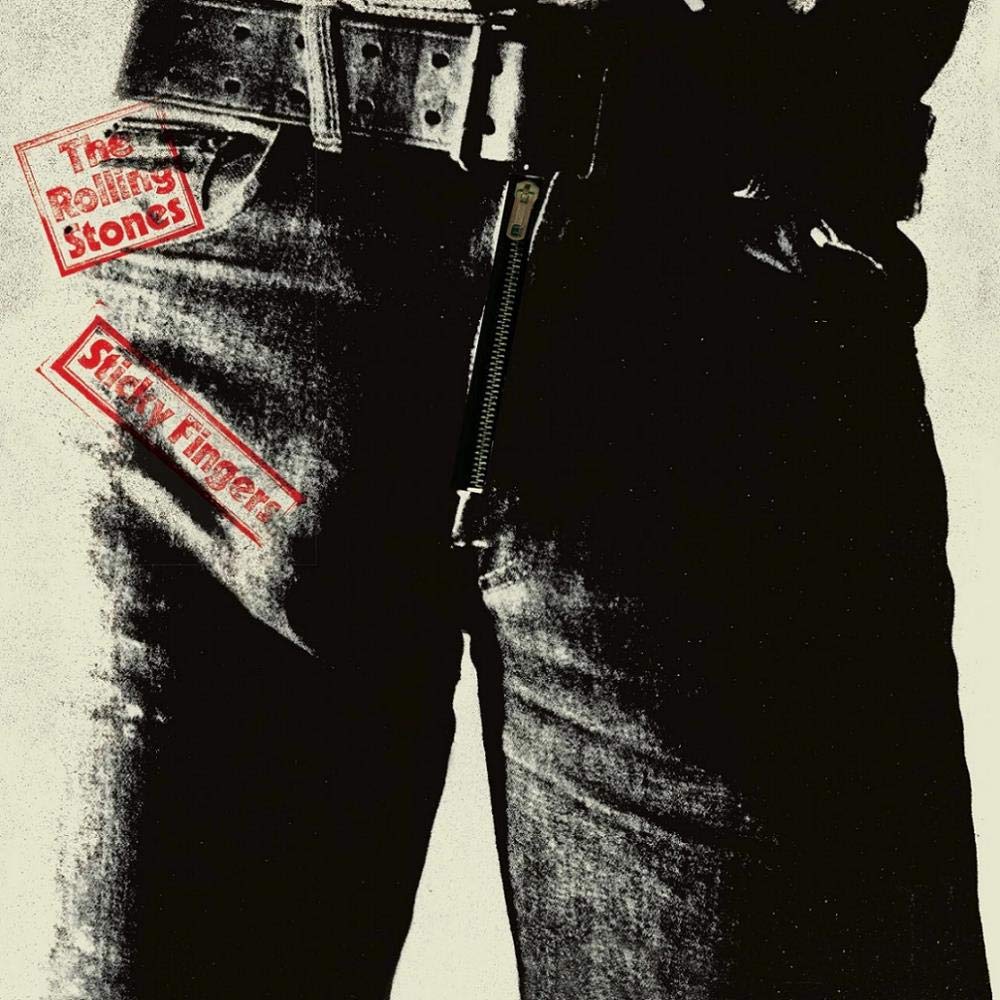 | Another Andy Warhol concept, the original vinyl featured a functional zipper on the cover. This playful, provocative design exemplified both the Stones’ raw rock swagger and pop art’s interactive flair. |
8) My Beautiful Dark Twisted Fantasy
 | Featuring multiple variations of George Condo’s surreal artwork, this release—along with its intentionally censored main cover—sparked discussions around censorship, artistic freedom, and the blend of high art with hip-hop culture. |
9) Aladdin Sane
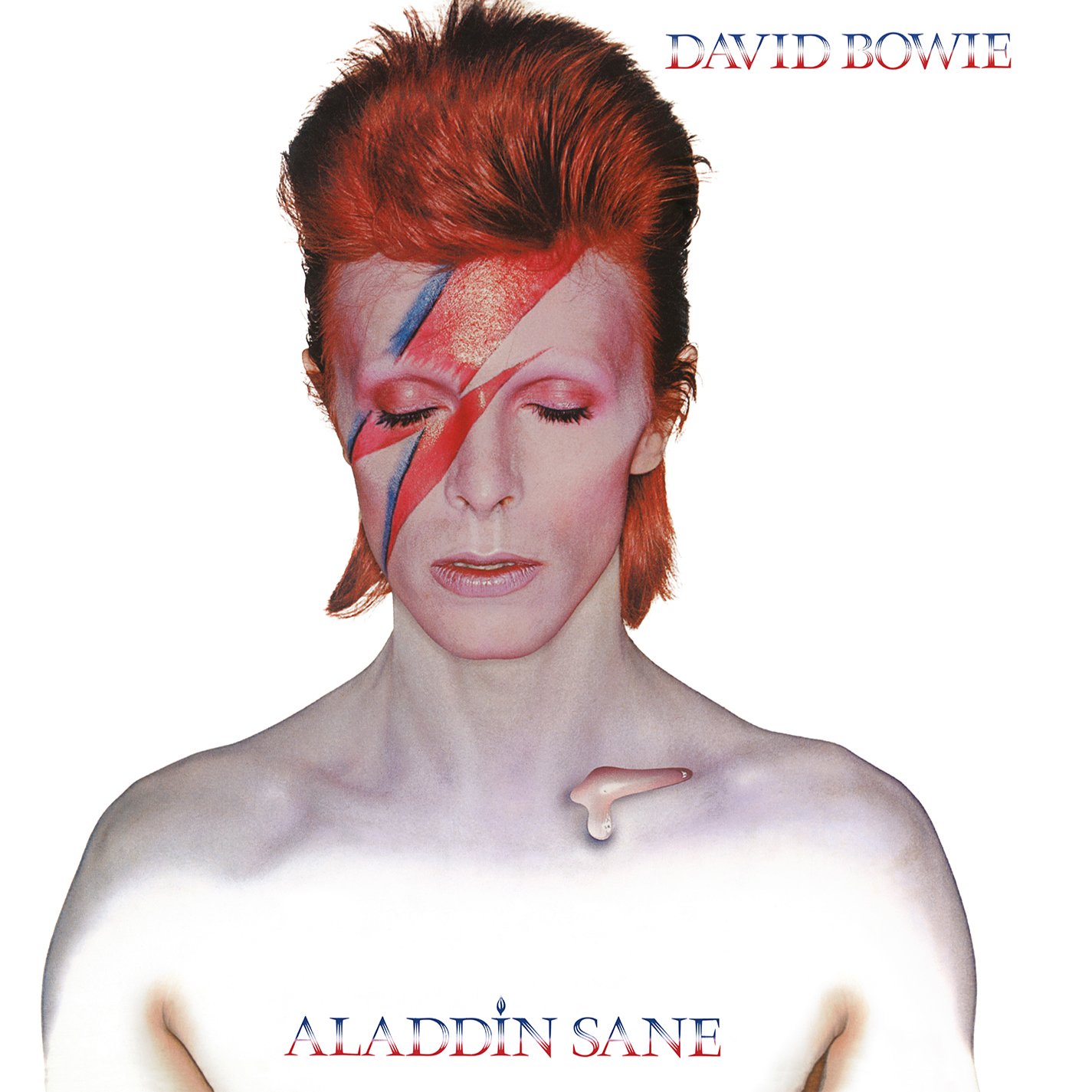 | The image of Bowie with a lightning bolt painted across his face, photographed by Brian Duffy, continues to be one of the most recognizable portraits in rock history, symbolizing Bowie’s ever-evolving, otherworldly persona. |
10) London Calling
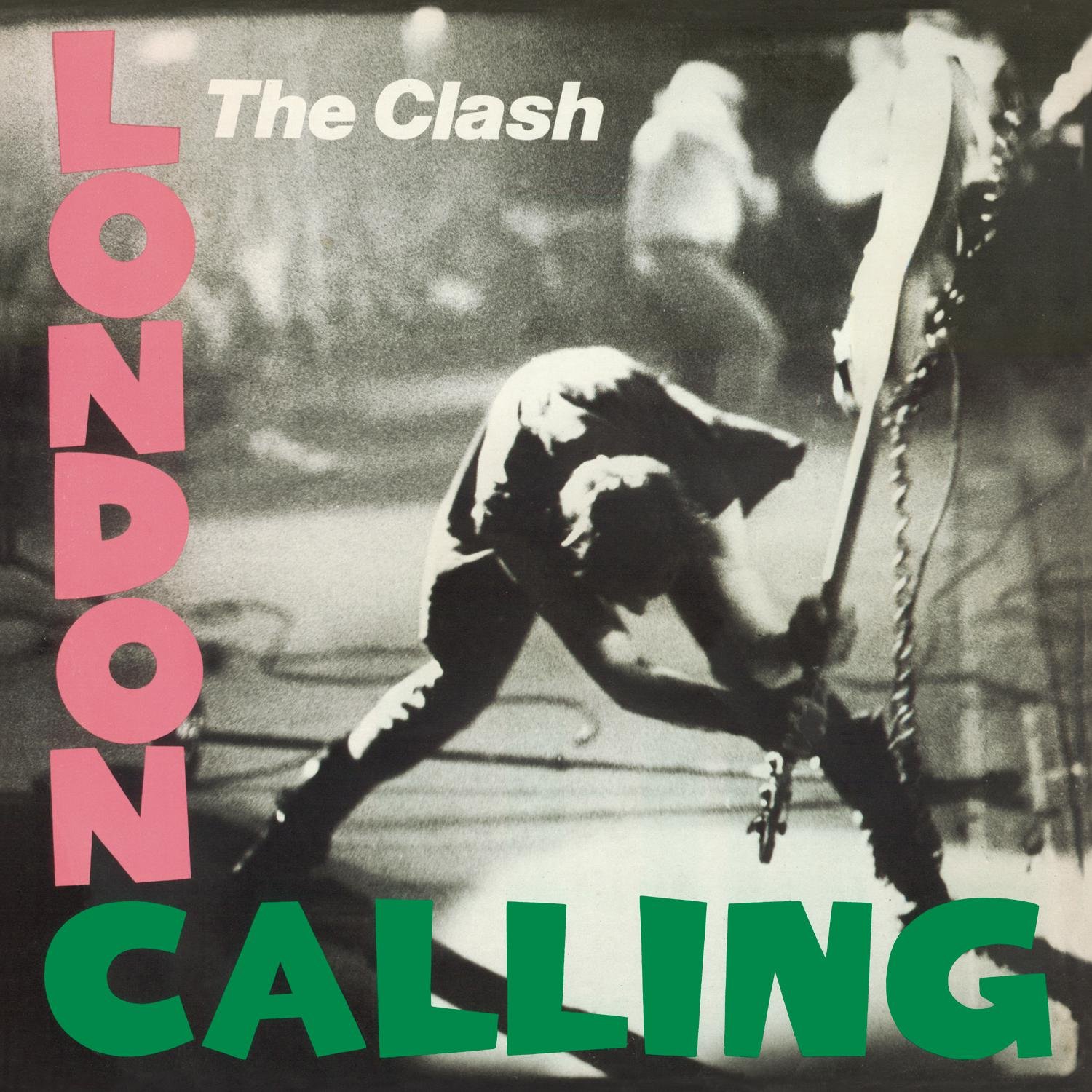 | The photo by Pennie Smith captures bassist Paul Simonon smashing his guitar on stage—an explosive moment that perfectly reflects the energy of punk rock. The layout, meanwhile, pays tribute to Elvis Presley’s debut album cover, tying punk back to rock’s roots. |
11) Led Zeppelin IV
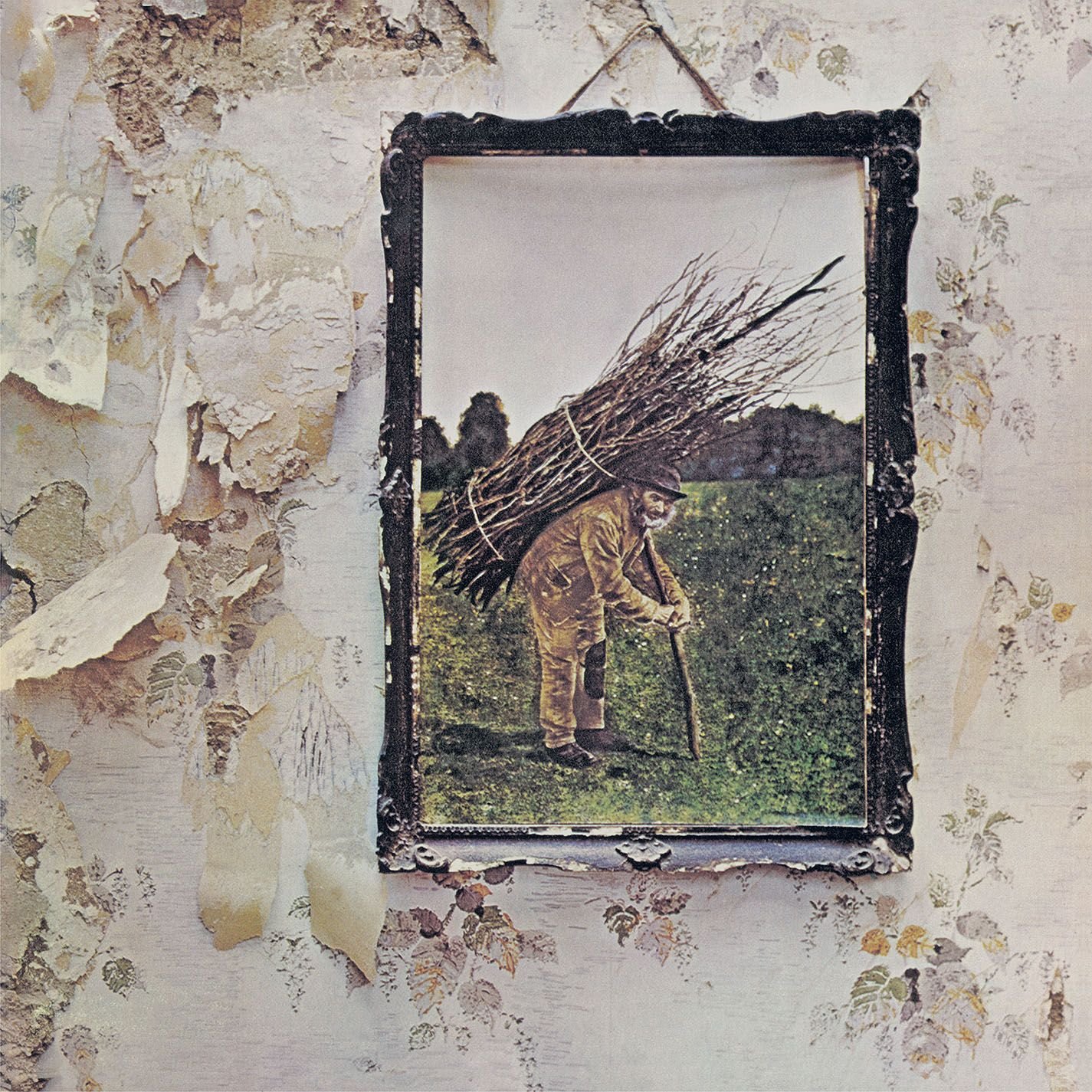 | There’s no band name or album title on the front cover—just a mysterious image of an old man carrying a bundle of sticks. This anonymity was a statement against commercial branding. It also played with the idea that Led Zeppelin’s music spoke for itself, transforming the cover’s sparse, rustic imagery into a recognizable piece of rock history. |
12) OK Computer
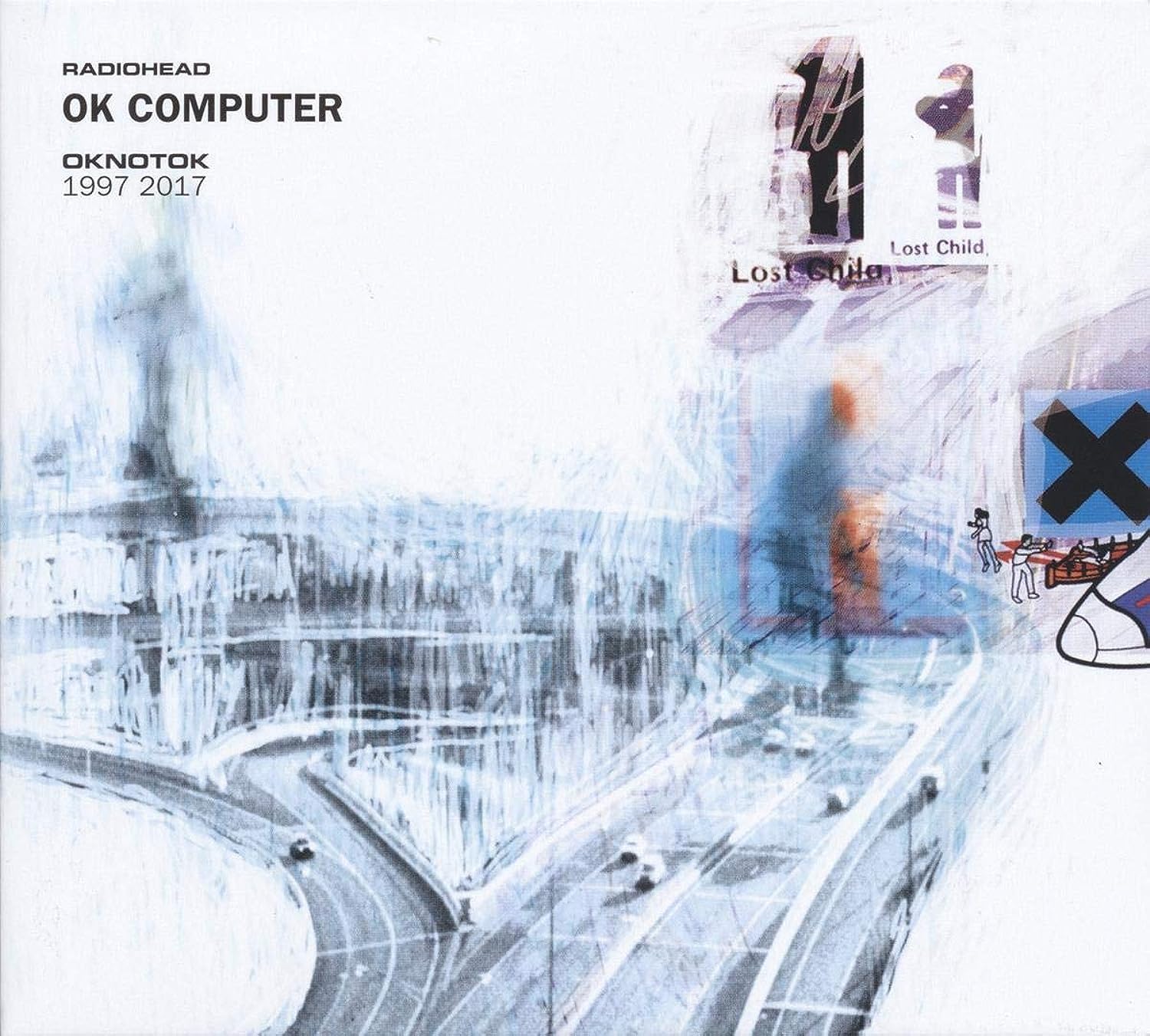 | Stanley Donwood and Thom Yorke (credited as “The White Chocolate Farm”) combined glitchy, futuristic design elements with manipulated images of traffic signs and technology. The result was an eerie yet mesmerizing depiction of modern alienation, perfectly capturing the album’s themes of societal disconnection and technological anxiety. |
13) Rumours
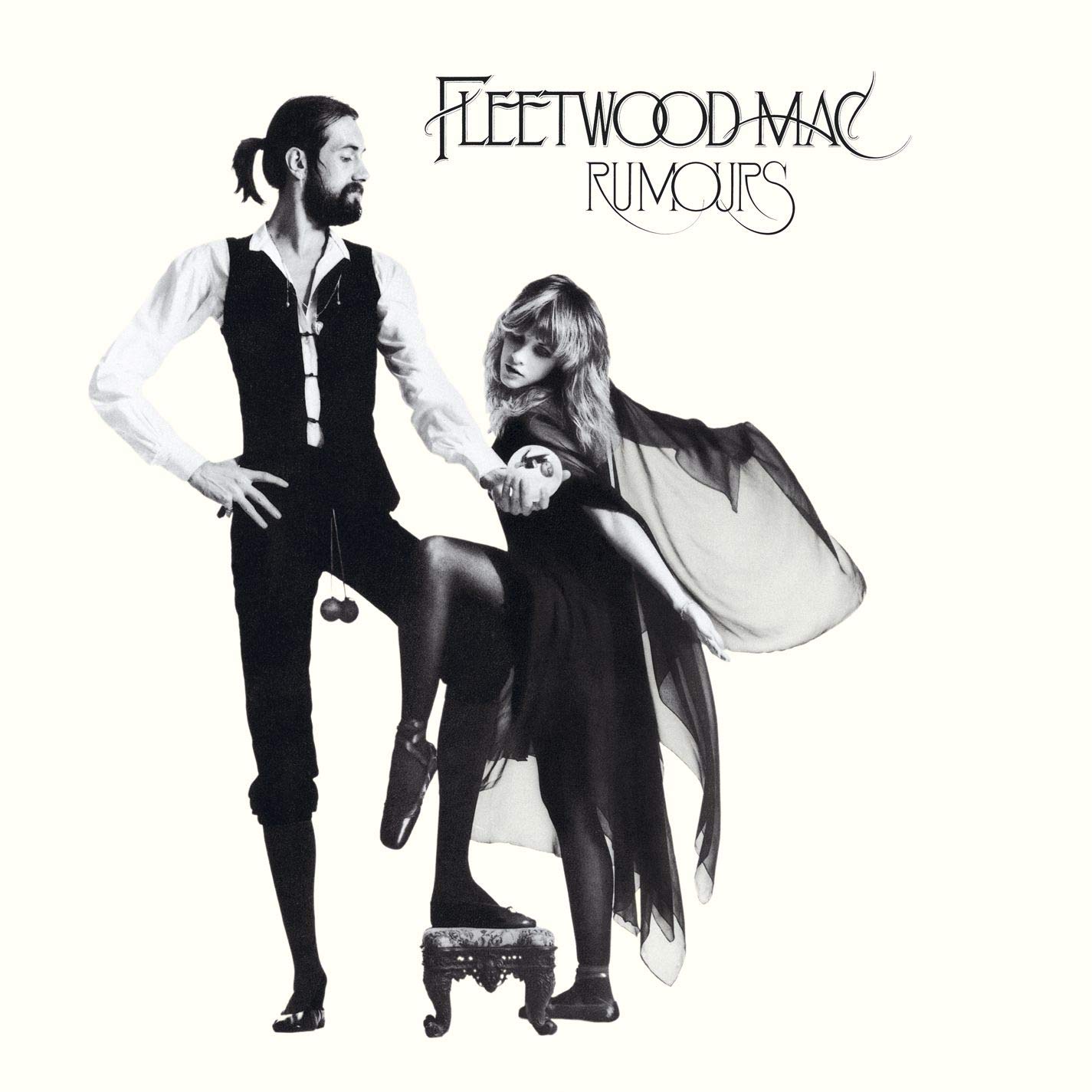 | The simple yet elegant black-and-white photograph by Herbert W. Worthington III features Mick Fleetwood and Stevie Nicks in a theatrical pose, emphasizing both the chemistry and tension within the band. It captures a delicate balance of intimacy and drama, mirroring the candid, interpersonal themes in the album’s songs. |
14) DAMN
 | At first glance, the cover is stark and direct: a red backdrop, simple typography, and Kendrick’s downcast expression. Yet it resonates powerfully, reflecting the raw, introspective energy of the album. The blocky “DAMN.” text has taken on a life of its own in memes and fan art, further cementing its cultural impact. |
15) Unknown Pleasures
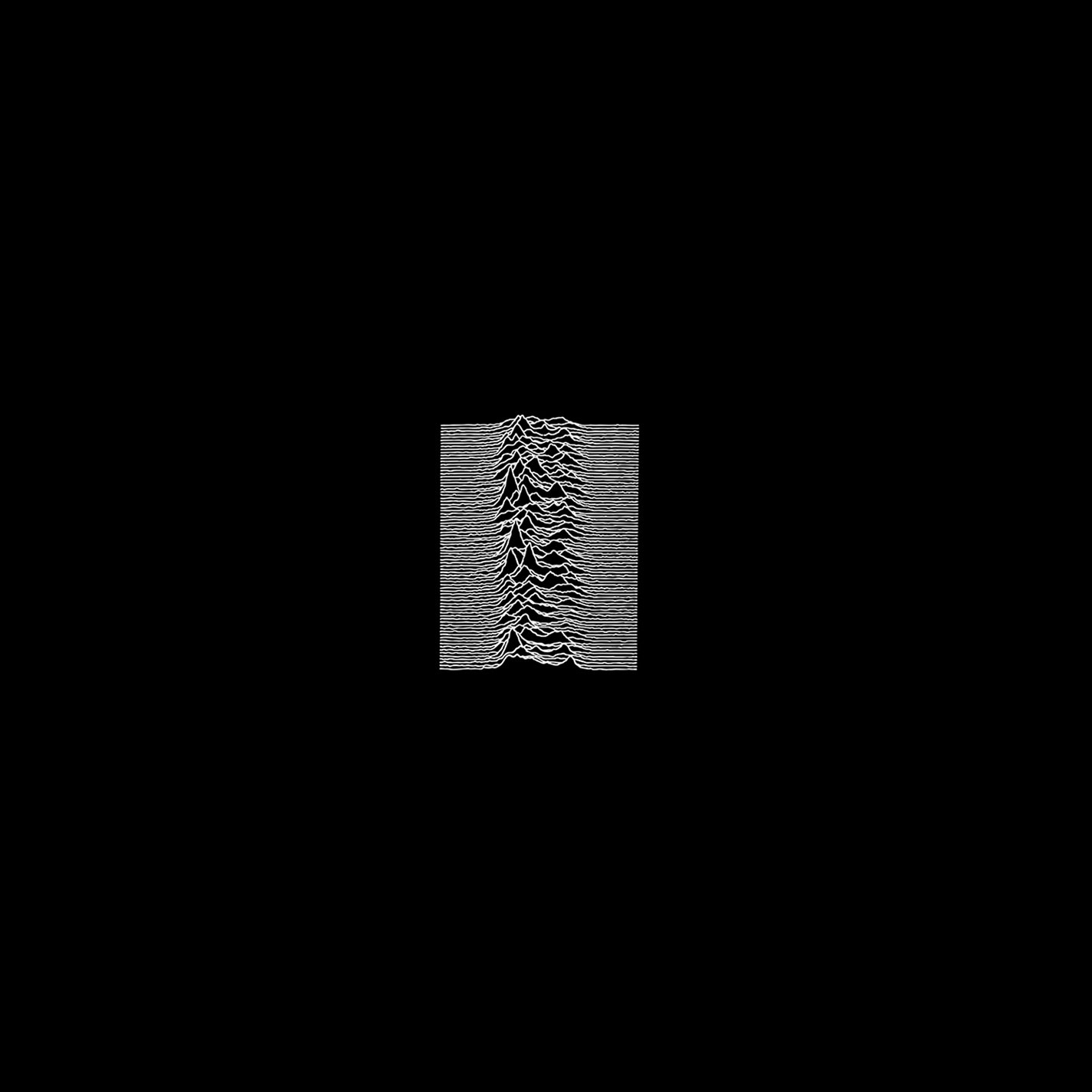 | The cover, designed by Peter Saville, features white radio waves (from the first discovered pulsar) on a black background. This minimalist, scientific image is at once mysterious and evocative—fitting for the band’s dark, atmospheric sound. It’s since become a ubiquitous design in pop culture, reproduced on T-shirts, posters, and more. |